The Amazon Rainforest Lost an Area the Size of Belgium Due to Deforestation
Join Us in a Photo Journey Through 2024: Week 4 (January 22-28)
Monday, January 22, 2024:
In 2023, the Amazon rainforest lost an area the size of Belgium due to deforestation. Elsewhere in the media, a new study received much attention; it found that climate change is causing many plant species to flower earlier than they have historically. The extent of this change varies by species and location. The effects tend to be more pronounced at northern latitudes, where plant populations often show more dramatic evolutionary responses to climate change.
I have noted the same in the Netherlands. Without making annual notes of flower blooming dates, I remember being surprised to see roses bloom in January and sharing photos of my small garden in winter on social media. Coincidentally, I photographed these flowers on the day the study was published. I'm still determining which plant they are from; the photo information only tells me I photographed them in or near my village on the island.
Tuesday, January 23, 2024.
A study revealed that microplastics were found in human placentas for the first time.
I walked that day on this path through the dunes to the North Sea, which you can see in the distance. These dunes are further south on the pleasant island of Walcheren, where my ancestors have lived for centuries.
In trying to connect this shocking news fact of microplastics in placentas with my enjoyable walk to the North Sea, I found a study from OceanCleanup stating that the findings suggest levels of microplastic pollution in the North Atlantic water column may soon exceed safe limits for marine organisms.
I enjoyed the beauty of the ocean because I couldn't see what scientists could see. Sometimes, I'm happiest when ignorant, but I realize that when too many people are ignorant, they vote for the wrong leaders.
Wednesday, January 24, 2024.
I could go for a 'light' version of the news because I'm devastated to see how many shocking studies come out daily; I only shared a fraction of what I read today. None of them is news for me because I read about all of them in January. But by making this end-of-year overview, I get a more overall perspective that is worse than I had expected.
So buckle up; here we go. Not only was there the news that the Great Barrier Reef experienced its most severe coral bleaching event on record, but it was also the day that the Arctic sea ice reached its lowest winter maximum extent in satellite record history. Just ten years ago, one of these stories would have made the headlines; now, you must either read the Guardian or be lucky to find it on page ten of your paper.
That day, I was in Middelburg on the island of Walcheren, where I made this Alexnote that some readers may remember.
Thursday, January 25, 2024.
I searched for positive news and found it in a report showing that global renewable energy capacity will grow by 50% in 2023. This is excellent news. I don't want to be a party pooper, but I want to remind you that we don't stop climate change by increasing renewable energy. Nature only responds to the amount of greenhouse gasses, not the number of wind turbines. I applaud the good news but note that emissions are still rising instead of going down steeply to stay below somewhat safe limits of atmospheric warming. But I have more positive news; it was also the day that the last coal-fired power plant in New England was permanently shut down.
The total picture of this week may seem pretty dark, but remember that this was still the hopeful time that we didn't know about US climate policies in 2025; it was still the most climate action-ambitious administration the US ever had (and will have had for the foreseeable future).
This Thursday, I stumbled upon a fairy tree in my village. Some weeks later, I wrote an article about it that became my most successful article on Medium.com.
Friday, January 26, 2024
The Doomsday Clock was moved to 90 seconds to midnight, the closest it's ever been. This decision makes me wonder what will happen next year when the historically most polluting country in the world is led by a pro-oil president who sees ecological measures as red tape that he wants to abolish. However, some positive news was President Biden signed an executive order to protect old-growth forests on federal lands.
I photographed these trees on this day. Although this is now a natural area, you can still see a pattern of early agriculture from centuries ago. Farmers planted rows of trees between the small plots of land, and the pattern remained long after they abandoned this sandy and wet soil close to the dunes.
Saturday, January 27, 2024
A rare "blue supermoon" was visible across much of the world, drawing stargazers globally.
I worked on my laptop in this cafe in Middelburg, bringing the only 21st-century object into a scene that a 17th-century master painter could have painted. I wonder if the American readers of this newsletter can imagine having such a cafe instead of the local diner; the cafe culture is one of the many reasons I love to live and work in Europe.
Sunday, January 28, 2024
Good news: this was the day the World Health Organization declared the end of the mpox global health emergency.
In my photo collection, I found this photo that I took close to home; it is typical of this landscape in January: bare trees reflected in still water against a stark blue sky. Did I tell you how much I enjoy living here?
This is part 4 in a series. If you missed the earlier ones, start here:
52 Weeks: Join Us in a Photo Journey Through 2024
The election is over. It is lost but not forgotten since seeing how right we were in our predictions and fears will be painful. For example, none of us ever believed Trump's promise to solve the war in Ukraine within a day of winning the election, so now, five days later, we kn…


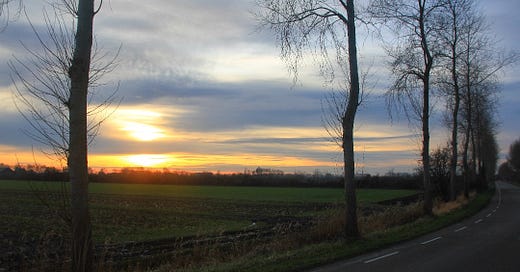



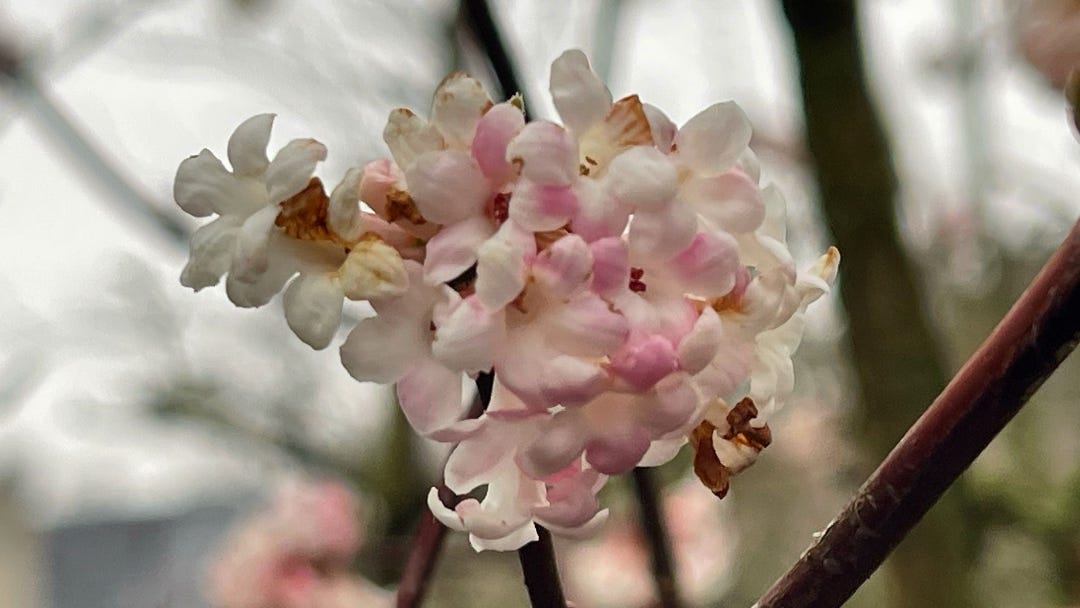
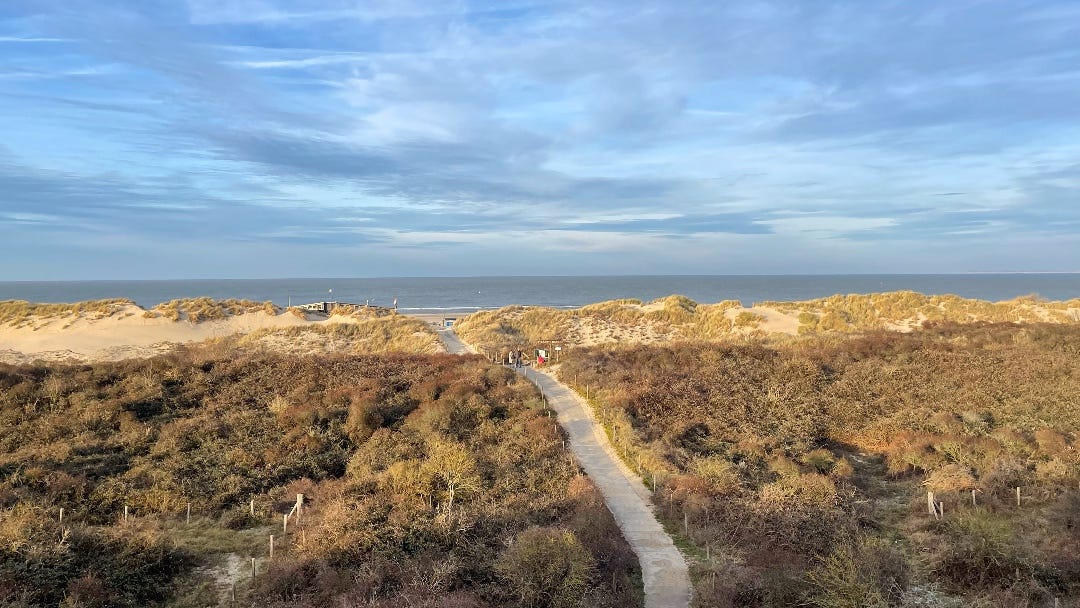
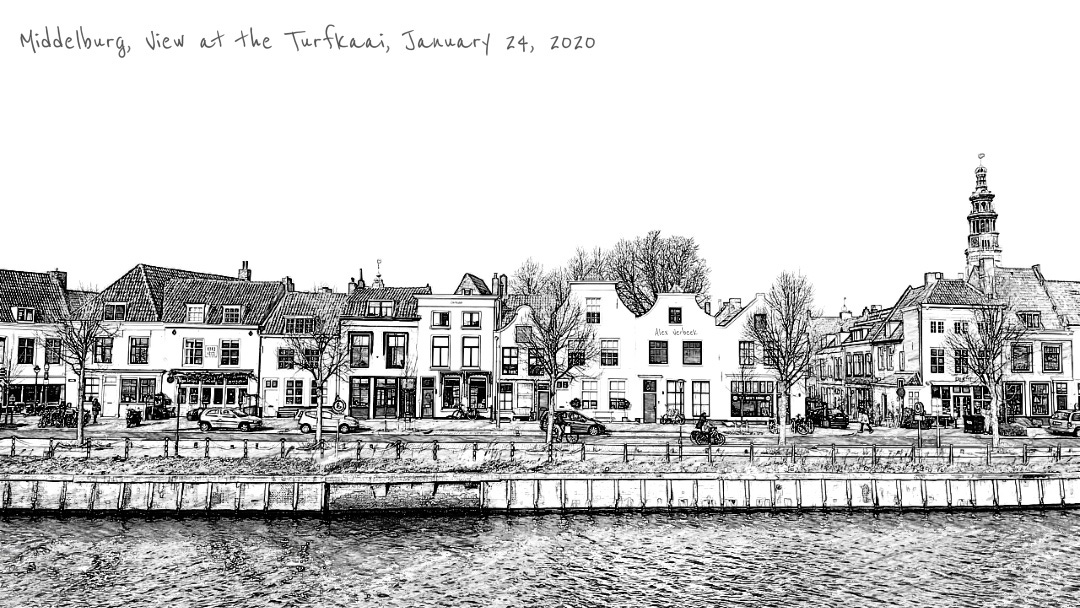
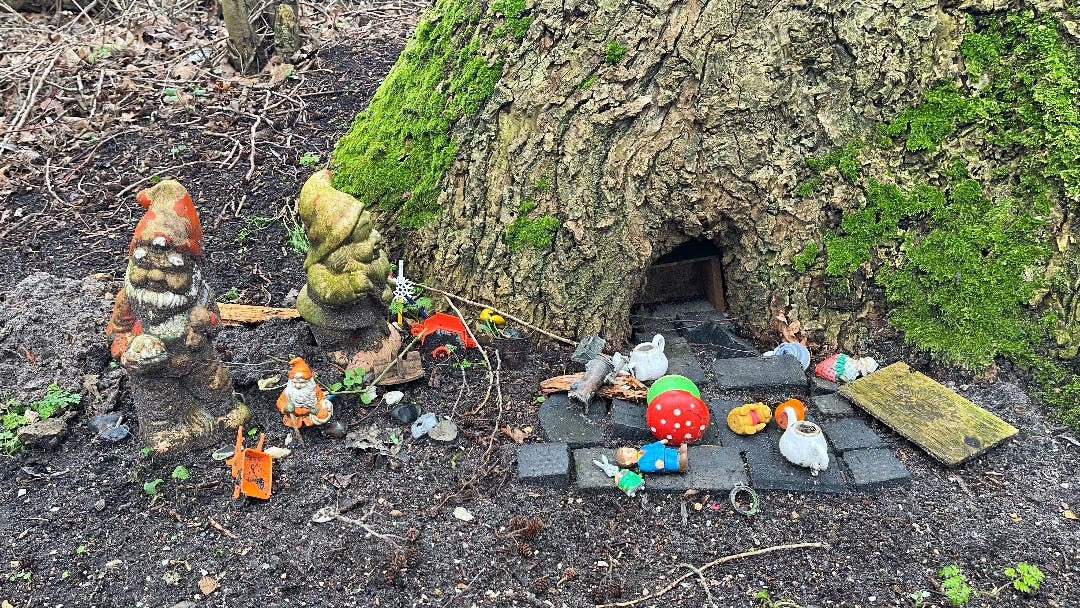
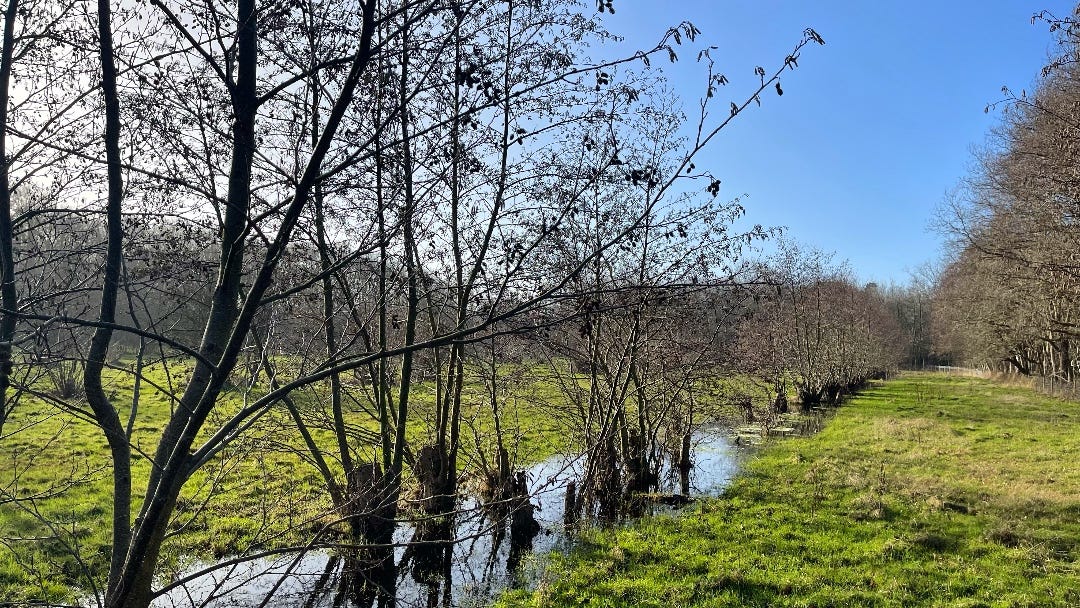
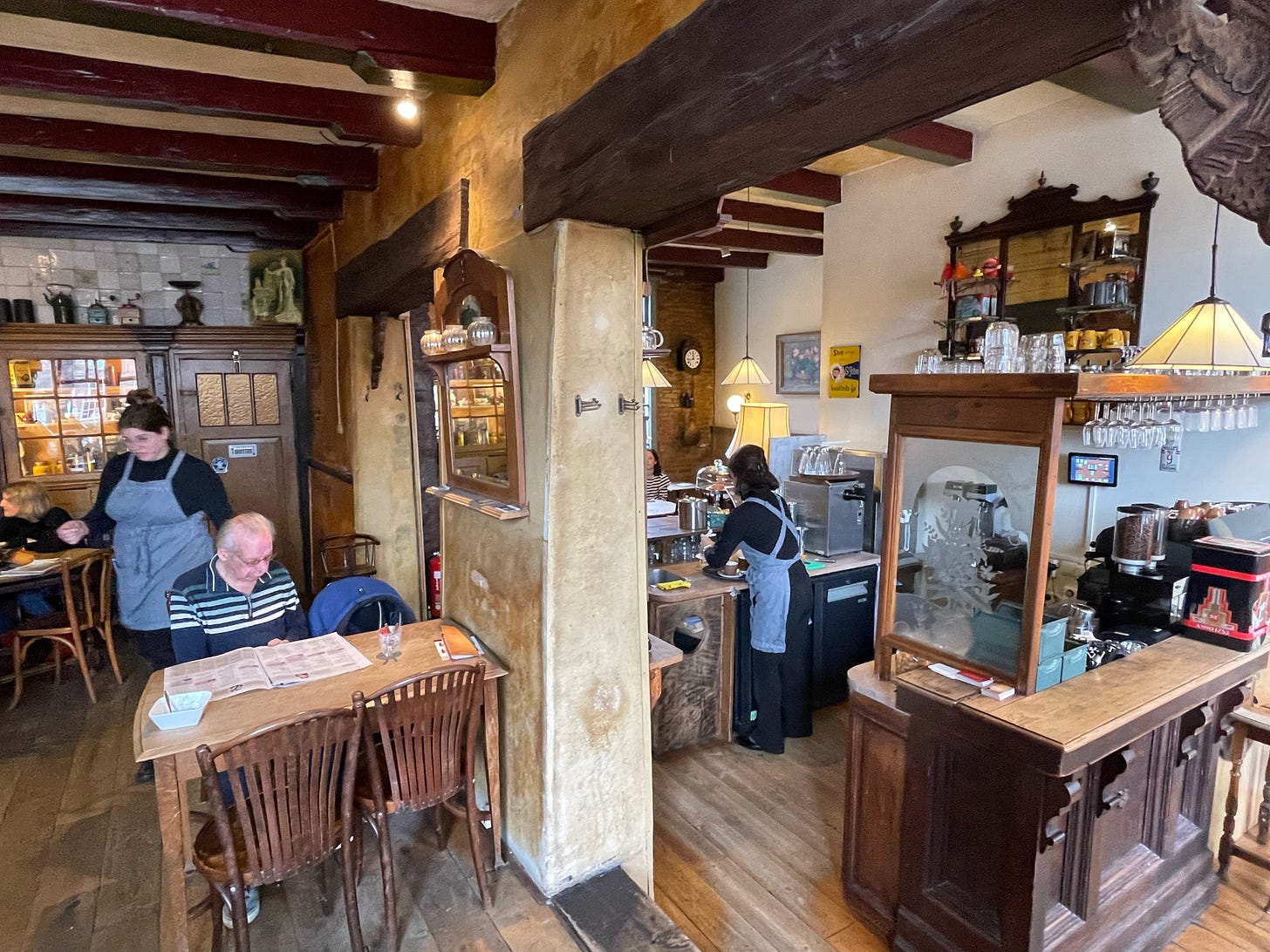


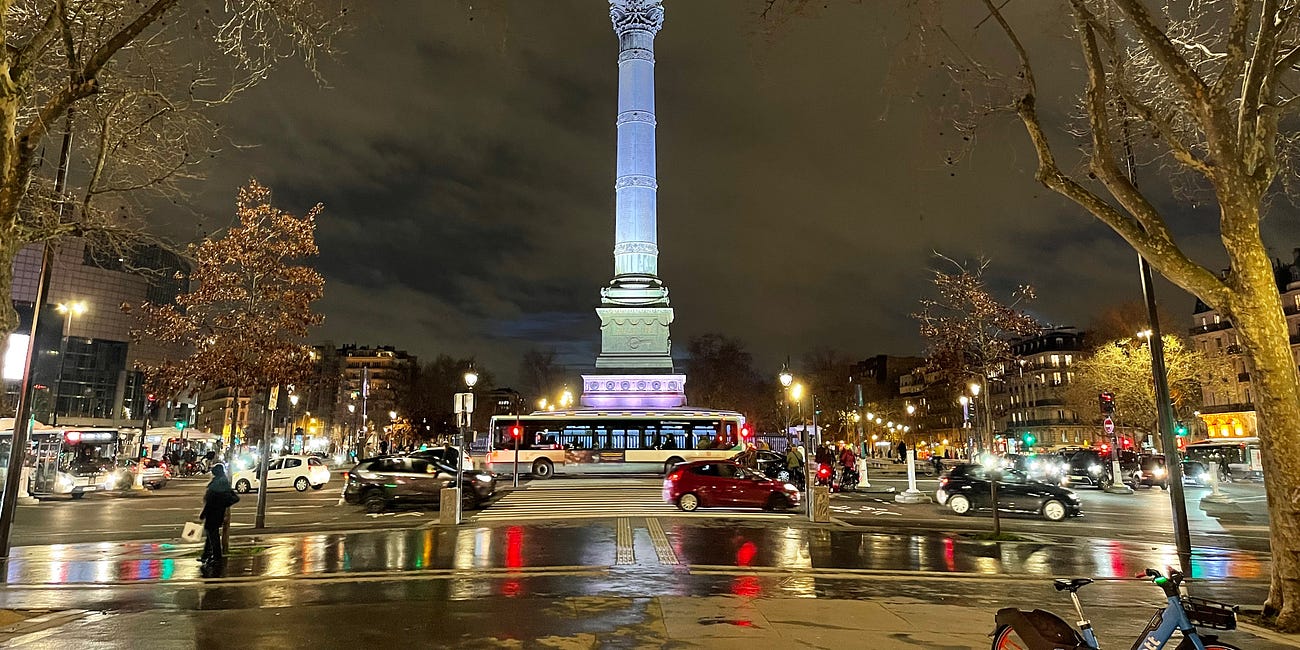

I'm so sorry you are immersed in all this horrid mess but grateful you bring it to our attention. We need to be prepared to fight.
Loved the fairy story. Both versions.
Loving your island pictures. I will admit to largely ignoring world news.
I also love writing at cafés. I don't know about you, but writing surrounded by people in a relaxed atmosphere with coffee/tea and apple pie - just perfect.